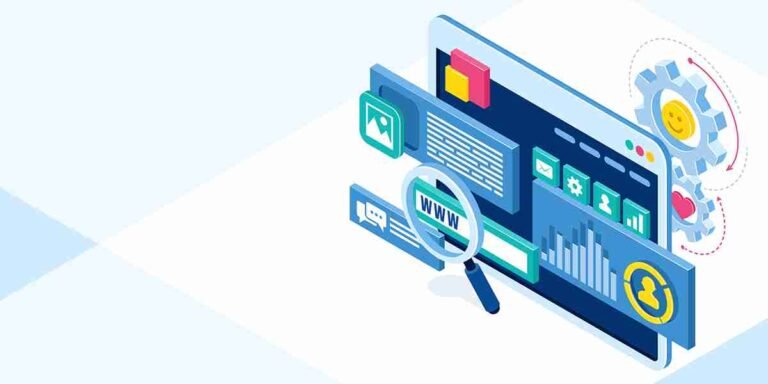Common PHP Development Mistakes and How to Avoid Them

PHP is one of the most widely used programming languages for web development, but even experienced developers can fall into common pitfalls. At Mountain Techno System, we understand that avoiding these mistakes is key to building efficient, scalable, and secure web applications. In this article, we’ll highlight the most common PHP development mistakes and provide actionable tips on how to avoid them, ensuring that your PHP applications run smoothly and securely.
While PHP is a versatile and powerful language, many developers make mistakes that can compromise the security, performance, and maintainability of their applications. At Mountain Techno System, we believe that learning from others’ mistakes is crucial to becoming a proficient PHP developer. Below are some of the most common PHP development mistakes and expert tips on how to avoid them.
1. Not Validating and Sanitizing User Input:
One of the most common mistakes is neglecting to validate and sanitize user input. This can lead to serious security vulnerabilities such as SQL injection, cross-site scripting (XSS), and cross-site request forgery (CSRF) attacks. Always validate input to ensure it meets the expected format and sanitize it before processing or saving to the database.
How to Avoid:
Use PHP’s built-in functions like filter_var(), htmlspecialchars(), and prepared statements with PDO for database queries to sanitize and secure user input.
2. Hardcoding Configuration Values:
Hardcoding sensitive data, such as database credentials and API keys, directly in your PHP code is a major security risk. It also makes your code difficult to maintain and scale.
How to Avoid:
Use environment files (.env) to store configuration values securely and load them using PHP’s getenv() or Laravel’s built-in env() function.
3. Neglecting Error Handling:
Many developers overlook error handling, which can result in cryptic error messages or, worse, exposure of sensitive application details to the user. This is particularly dangerous in production environments.
How to Avoid:
Implement robust error handling using try-catch blocks and log errors to a file instead of displaying them on the screen. Use PHP’s error_reporting() function to control error visibility and maintain secure and user-friendly output.
4. Not Using Prepared Statements for Database Queries:
Directly embedding user input in SQL queries is a significant security vulnerability, as it exposes your application to SQL injection attacks. Prepared statements are essential to ensure safe database interactions.
How to Avoid:
Always use prepared statements with PDO (PHP Data Objects) or MySQLi to handle database queries securely. This ensures that user input is treated as data, not code, eliminating the risk of SQL injection.
5. Ignoring PHP’s Memory Management:
PHP’s memory management can be a potential bottleneck, especially when dealing with large datasets or intensive operations. Not managing memory properly can lead to memory leaks or performance degradation.
How to Avoid:
Be mindful of memory consumption when working with large data sets. Use unset() to free up unused variables and avoid holding large objects in memory. Also, consider using caching techniques to improve performance.
6. Not Using Object-Oriented Programming (OOP):
Writing procedural PHP code for complex applications can make your code difficult to maintain and scale. Object-Oriented Programming (OOP) offers a more structured and modular approach to code development, which leads to better maintainability and scalability.
How to Avoid:
Use OOP principles such as classes, objects, inheritance, and polymorphism to make your code more modular, reusable, and easier to debug.
7. Overloading Your PHP Scripts:
Putting too much logic into a single PHP script can make your application hard to maintain and slow to execute. Keeping scripts small and focused is essential for scalability and clarity.
How to Avoid:
Adopt MVC architecture (Model-View-Controller) to separate logic, presentation, and data. This approach will help you structure your application efficiently, making it easier to maintain and extend.
8. Neglecting Version Control:
Not using a version control system like Git is a common mistake that can lead to code conflicts, loss of work, and difficulty in tracking changes, especially when working in teams.
How to Avoid:
Use Git to track code changes and collaborate with team members. Commit your changes regularly and use platforms like GitHub or GitLab for hosting your repositories.
9. Not Optimizing PHP Code for Performance:
Inefficient PHP code can result in slower website performance and higher server costs. Common performance bottlenecks include excessive database queries, large file uploads, and inefficient algorithms.
How to Avoid:
Optimize your PHP code by reducing the number of database queries, using caching (such as Redis or Memcached), and profiling your code with tools like Xdebug to identify bottlenecks.
10. Not Writing Unit Tests:
Skipping unit testing can lead to the introduction of bugs and make the code harder to maintain and refactor. Unit tests are essential for ensuring that your code works as expected and catches issues early in development.
How to Avoid:
Write unit tests using tools like PHPUnit to verify that your PHP code behaves as expected. This practice ensures that changes to your code don’t introduce new bugs and keeps your codebase stable.
11. Neglecting Security Updates:
PHP and its related technologies are constantly updated with security patches. Failing to keep your PHP version, frameworks, and libraries up-to-date leaves your application vulnerable to known exploits.
How to Avoid:
Regularly update PHP, your frameworks (e.g., Laravel, Symfony), and libraries to the latest stable versions. Monitor security advisories and apply patches as soon as they are released.
At Mountain Techno System, we emphasize the importance of avoiding these common PHP mistakes to build secure, scalable, and maintainable web applications. By following these best practices, you’ll be able to enhance your development process and deliver high-quality PHP applications.














